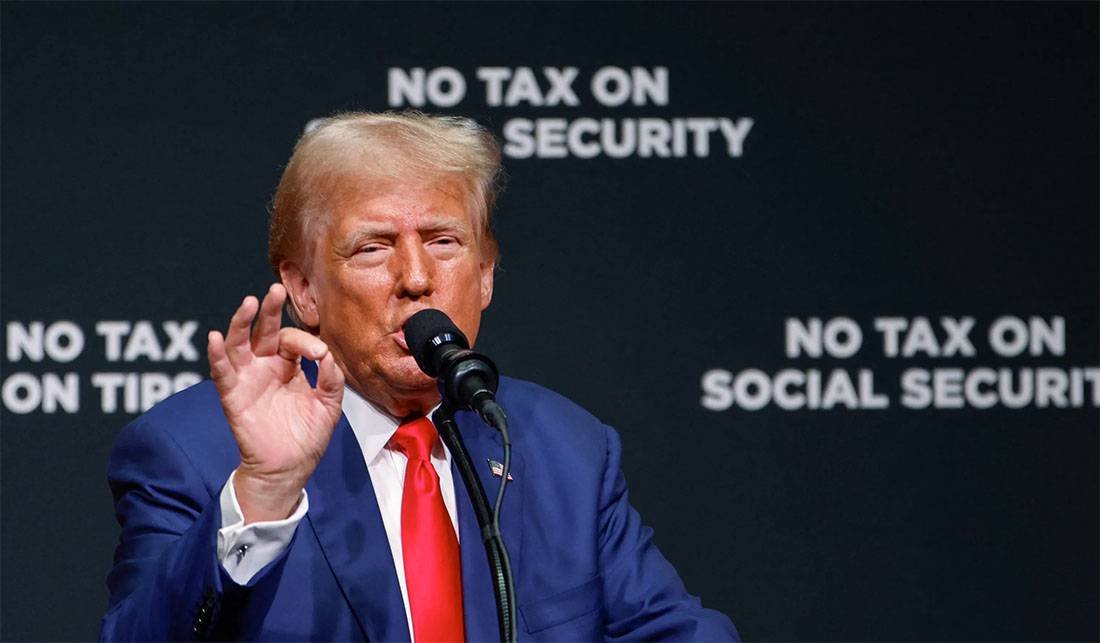Photo Credit: Getty Images
President-elect Donald Trump has unveiled an aggressive economic strategy, promising substantial tariffs on imports from Mexico, Canada, and China. The announcement signals a return to his signature "America First" approach, potentially reshaping international trade dynamics.
Trump's plan includes a sweeping 25% tariff on all products from Mexico and Canada, contingent on their efforts to control border crossings and drug trafficking. In a bold move, he also threatened an additional 10% tariff on Chinese imports, specifically targeting fentanyl smuggling.
The economic ramifications could be significant. The Peterson Institute for International Economics estimates these tariffs would cost the typical US household over $2,600 annually. Economists warn that such broad-based tariffs could raise everyday item prices and potentially dampen global economic growth.
International markets immediately reacted to the announcement. Currencies including the Canadian dollar, Mexican peso, and others dropped against the US dollar. Asian stock markets experienced notable declines, with Japan's Nikkei 225 falling 1.59%.
Diplomatic responses were swift and measured. Canadian Deputy Prime Minister Chrystia Freeland emphasized the strong trade relationship between the US and Canada, highlighting their mutual economic benefits. The Chinese embassy warned that "no one will win a trade war," urging collaborative approaches.
The tariffs could significantly impact existing trade agreements. More than 83% of Mexico's exports and 75% of Canadian exports currently go to the United States. The proposed measures raise questions about the future of the US-Mexico-Canada Agreement (USMCA), potentially disrupting established trade frameworks.
Supporters argue the tariffs could encourage domestic manufacturing and provide negotiating leverage. Critics, including former Labor Secretary Robert Reich, contend that tariffs function essentially as sales taxes, disproportionately affecting working-class consumers.
Trump's economic team, including newly appointed Treasury Secretary Scott Bessent, views tariffs as a strategic negotiation tool. Bessent has previously described tariffs as useful for strengthening the president's diplomatic hand.
The global economic community remains cautious. Gary Ng, an economist at Natixis, suggests the tariffs could lead to higher US inflation, complicating Federal Reserve rate-cutting strategies and potentially strengthening the US dollar.
The coming months will reveal whether these proposed tariffs will be fully implemented and how they might reshape international trade relationships.


